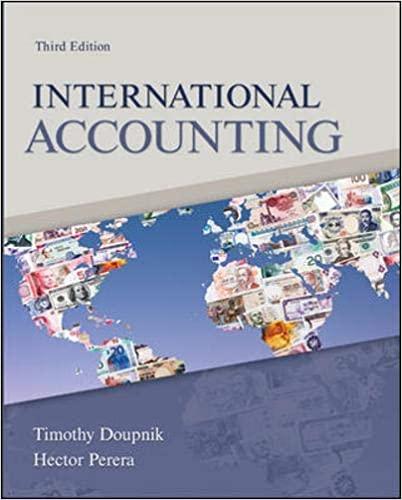Question
Which of the following is not one of the inherent limitations of internal control? a. Lack of proper segregation of incompatible duties b. Management override
Which of the following is not one of the inherent limitations of internal control?
a. Lack of proper segregation of incompatible duties
b. Management override
c. Faulty human judgment
d. Collusion
Physical controls to safeguard assets would include:
a. locks on the warehouse doors
b. safety audits on the production-line
c. segregation of duties
d. hiring only trustworthy cashiers
Monitoring
a. sets the tone of an organization, influencing the control consciousness of its people
b. is a process that assesses the quality of internal control performance over time
c. is the entity's identification and analysis of relevant risks as a basis for their management
d. support the identification, capture, and exchange of information in a form and time frame that enable people to carry out their responsibilities
Which of the following is least likely to be appropriate as the basis for determining the preliminary judgment about materiality in the audit of financial statements?
a. revenues
b. current liabilities
c. losses
d. assets
Questionnaires consist of a series of interrelated questions about internal control policies and procedures. The questions are typically phrased so that a "yes" indicates a control strength and a "No" indicates a potential weakness. An advantage(s) of the questionnaire is (are)
a. flexible to prepare, although difficulty for a complex system
b. identify the contingencies considered in the in the description of a problem and the appropriate actions to be taken in each case
c. provide a visual representation of the system and flexible in construction
d. help identify concerns and prevents the auditor from overlooking important control considerations
PSAs require the auditor to obtain understanding of the entity's internal structure
a. for every audit
b. for first time audit clients
c. sufficient to find any frauds that may exist
d. whenever the auditor wishes or sees necessary
Risk assessment procedures performed to obtain evidence about the design and implementation of relevant controls include
a. analytical procedures
b. recalculation
c. tracing transactions or walkthrough
d. external confirmation
Step by Step Solution
There are 3 Steps involved in it
Step: 1

Get Instant Access to Expert-Tailored Solutions
See step-by-step solutions with expert insights and AI powered tools for academic success
Step: 2

Step: 3

Ace Your Homework with AI
Get the answers you need in no time with our AI-driven, step-by-step assistance
Get Started


